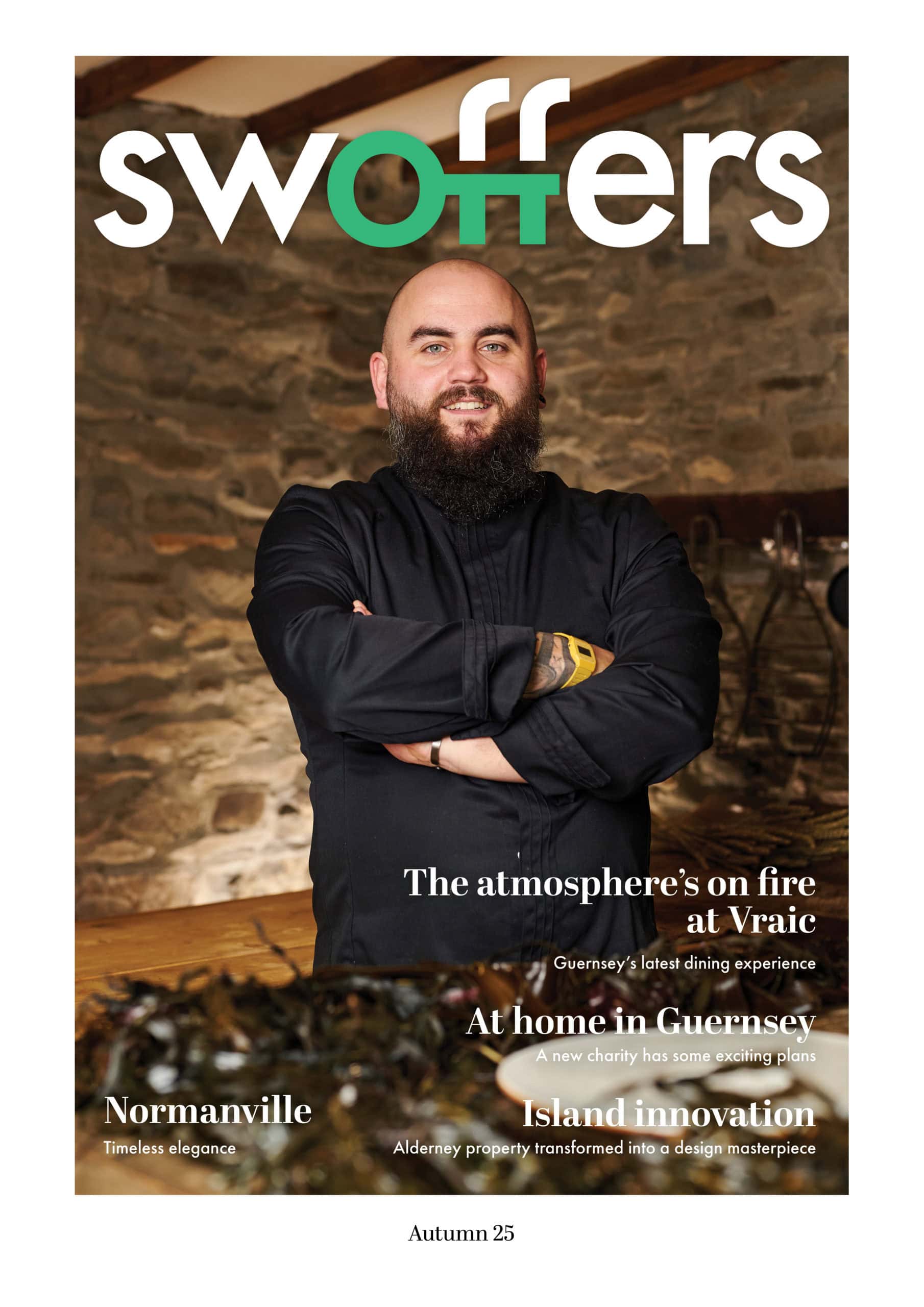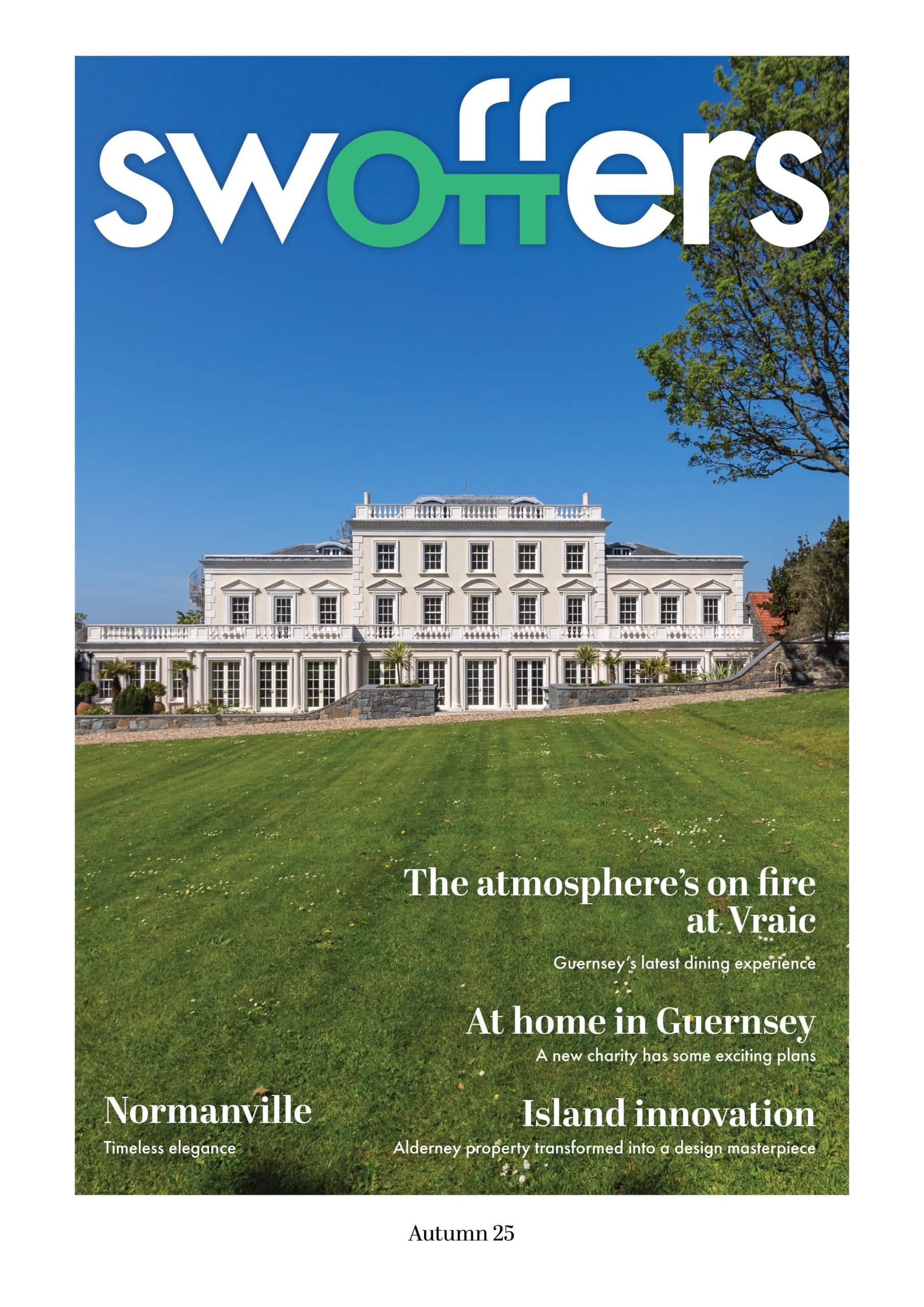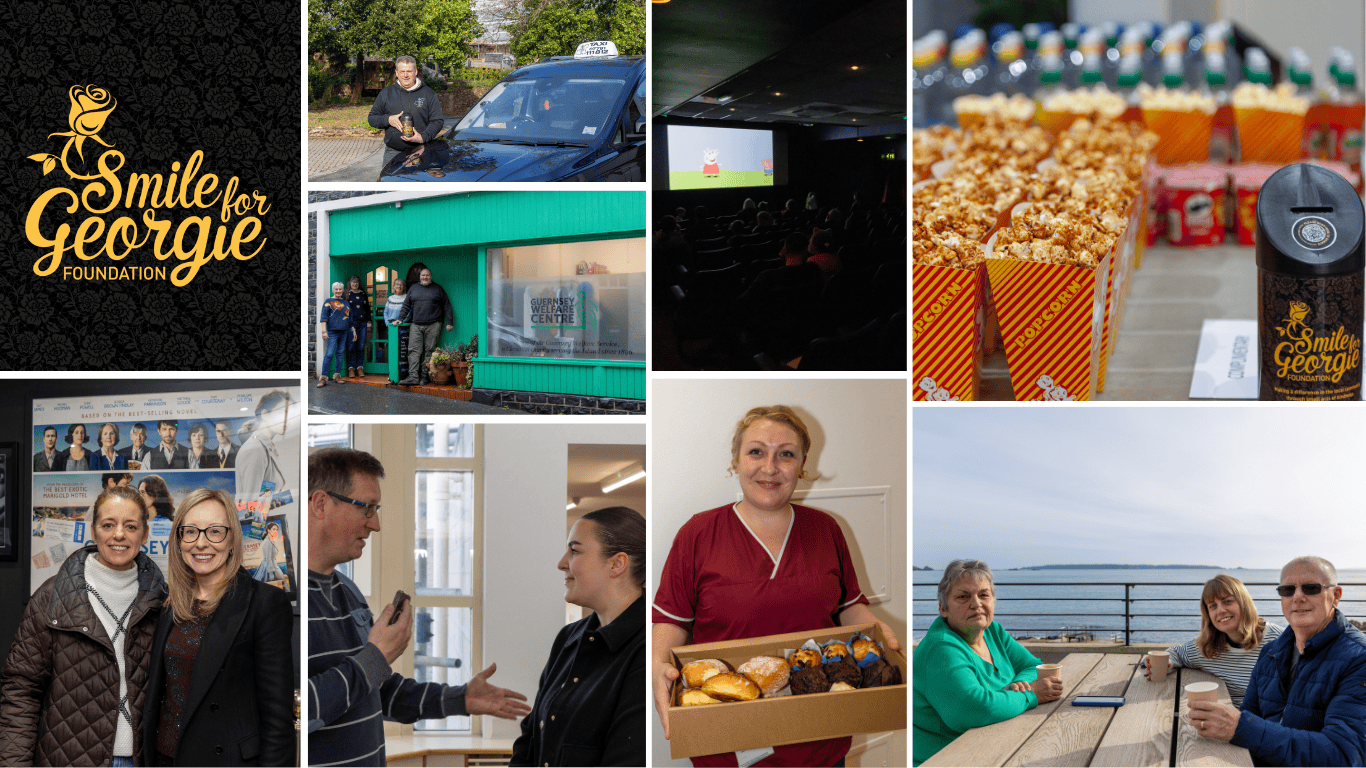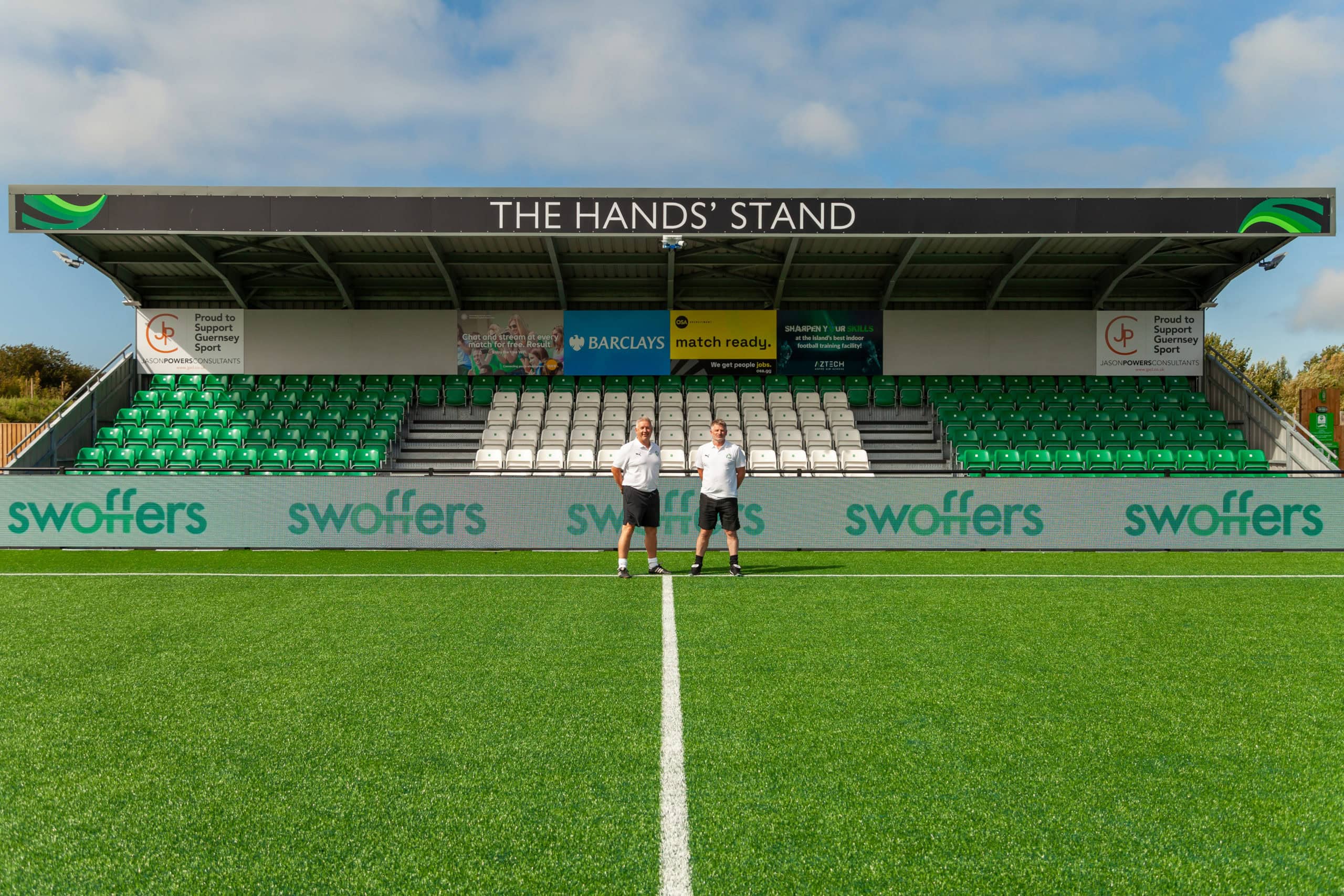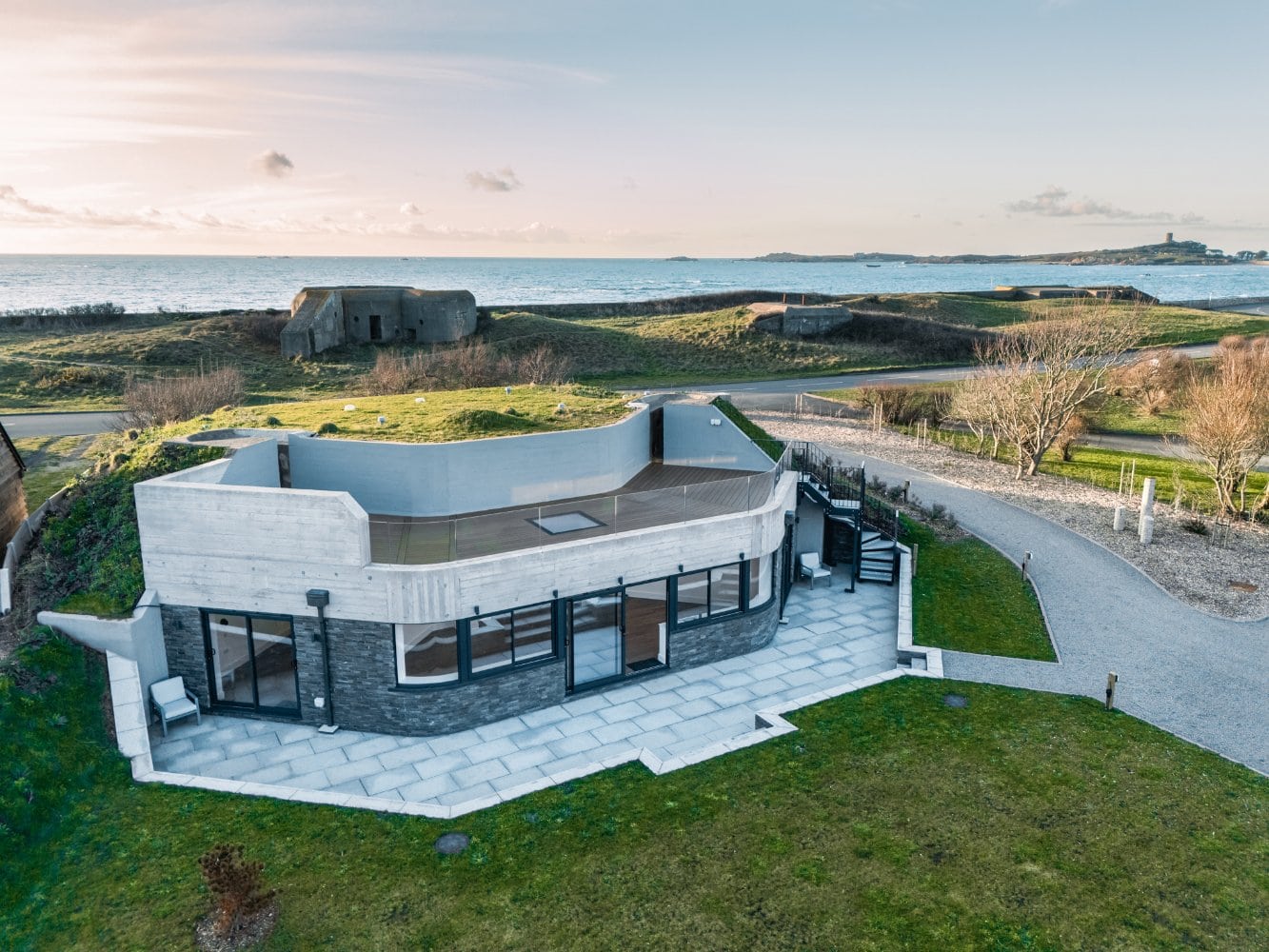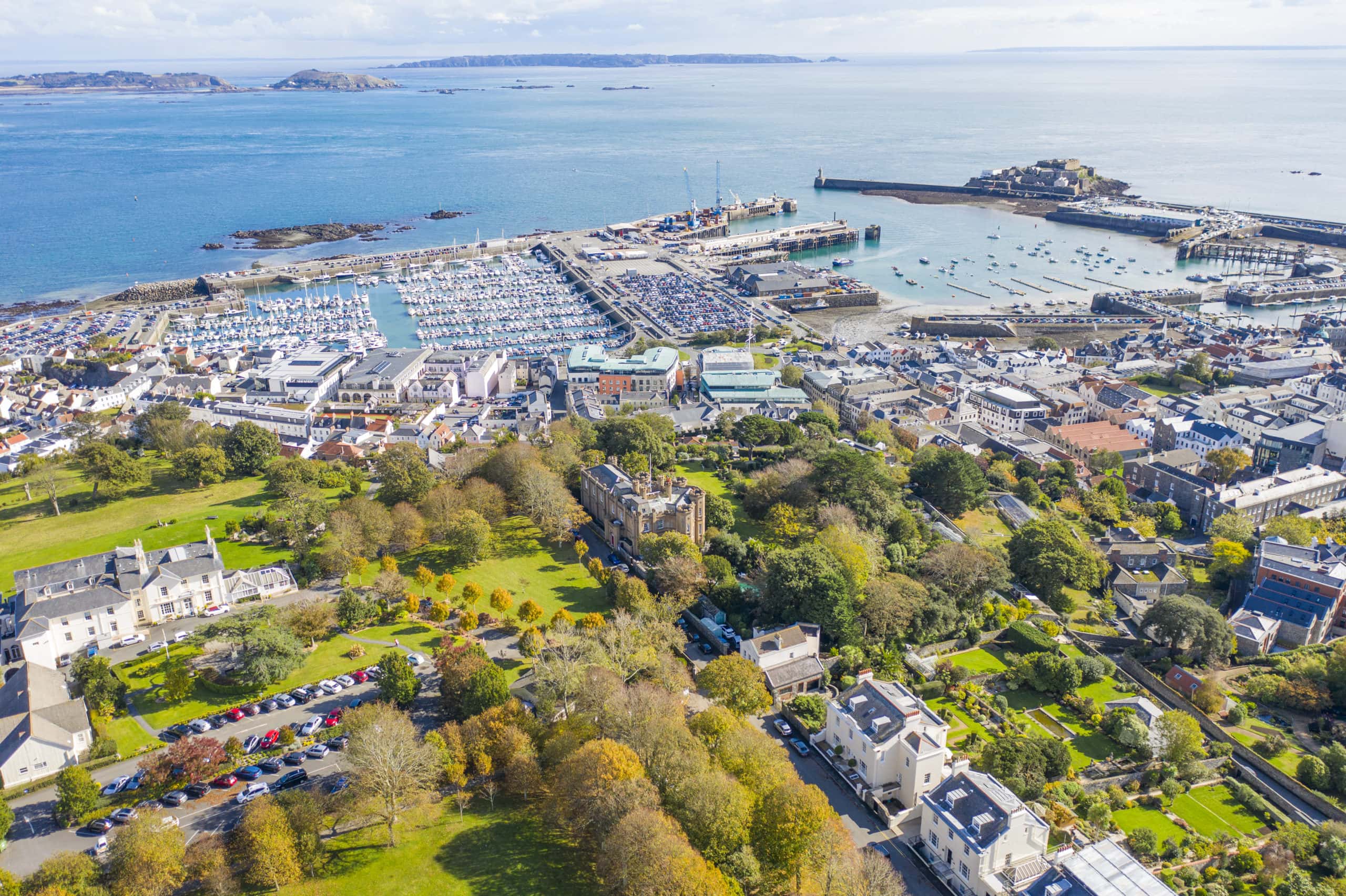‘I feel it because we can see it,’ says Helen Young as she sits on one of the island’s beautiful west coast beaches, and explains the inspiration for her green, ethical lifestyle.
Helen is one of Guernsey’s new generation of ‘good lifers’ who have thrown off the shackles of the rat race and ‘normal’ modern living.
In 2017 she launched the charity Plastic Free Guernsey to reduce the island’s consumption of single use plastic. The island may be small, she says, but it can also be mighty.
‘The idea behind Plastic Free Guernsey was I realised how little people know about recycling, that recycling is not the perfect answer,’ she said.
‘By doing it, it’s helped me learn a lot and you realise that we have to try to cut down on what we’re using, every bit of plastic that has ever been produced is still out there, which is horrific.
‘Bringing a little person into the world made me even more aware of that.’
Her daughter Olive is playing with her pre-loved dinosaurs in the sand, along with a gentle instruction not to accidentally lose them. She is well-schooled in the re-use concept and is delighted with her fourth-hand school uniform, and sometimes asks about the children who have read or played with the books and toys before her.
‘I actively involve her, whether it’s planting, whether it’s cleaning the beach, picking up litter, not wasting things, recycling – but it’s talking to kids in a way without giving them too much eco-anxiety. They see the little bits they can do, and they work on that and build up, but they mustn’t think they’ve got to do it all.’
Strong communities have sprung up in Guernsey in recent years to encourage greater respect of the environment. For instance, when a cargo spill earlier this year resulted in thousands of plastic products washing up on island beaches, an army of beachcombers leapt into action and picked up the rubbish, demanding accountability from the company responsible. Repair cafes and clothes swaps have popped up to challenge the throwaway culture.
Helen said there were some good island networks, although they were mainly populated by women.
‘It’s not always easy to reach those people, but when you have reached them, they are very encouraging. It is mainly women, from the Plastic Free Guernsey people, I think 80% or more are women, and the team that run it we’re all women, and we don’t know how to get more men onboard.’
Some men were mentioned in despatches, but they tend to operate more as lone wolves, whereas the women like to club together. Environmentalism runs through Helen’s lifestyle, for instance she makes reusable face wipes, kitchen roll, sanitary towels, and fruit and vegetable produce bags. She loves a second, third or fourth-hand bargain, and has grown her own vegetables and fruits for the past 14 years.
‘You don’t have to be green-fingered; I grow whatever I throw in the ground really, it’s quite experimental, it’s not always that reliable, but it’s enjoyable getting your hands in the dirt,’ said Helen.
This year’s bounty includes potatoes, raspberry canes that have gone ‘absolutely bananas’, cabbages, broccoli, onions, tomatoes, and courgettes. The proof of the pudding is in the tasting, and Olive declares, after some contemplating, that her mum is a good cook, and her best dish is ‘spaghetti carbonara’.
Plastic Free Guernsey’s next project is a coffee cup deposit scheme, which aims to replace disposable cups in the island with reusable mugs. Helen is more than happy to point out that she is not perfect, and that no one can be 100% sustainable.
But as a relatively affluent island, she hopes that Guernsey can do its bit.
‘Those of us who are privileged enough to be able to choose to live more sustainably and can afford to make those choices, we are the ones who should.
‘Living on an island it’s impossible not to see the effects, you can’t not see it.’
